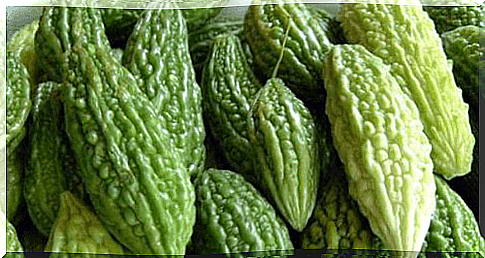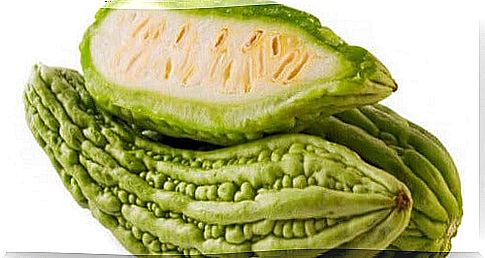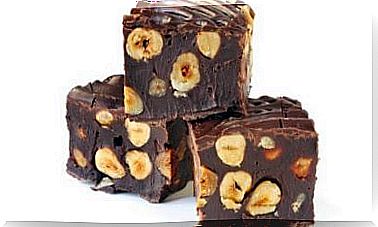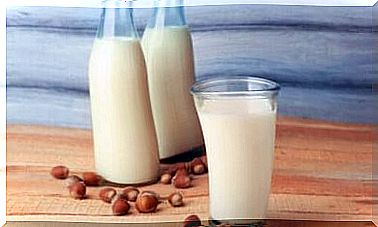Bitter Melon And Its Relationship To Cancer And Diabetes

Bitter melon ( Momordica charantia ), also known as melon, is being promoted around the world as a weapon against cancer. Tea from the plant is also being consumed by patients with diabetes to lower their blood sugar level, so much so that in some countries it is known as “vegetable insulin”.
But are these properties true and work for all patients, or is it another one of those “miracle remedies” that occasionally appear in the media?
Bitter melon has tradition in its favor. This is because it has been used by people all over the world for centuries, not just as a food, but above all as a medicine. Even the Brazilian Ministry of Health is interested in studying the beneficial effects of this plant for pharmaceutical purposes.
In this article, we will talk about the properties of the plant, which is widely used in South America, Asia and Africa, as well as studies that prove its multiple benefits. We will also talk about how to prepare bitter melon tea.
Research into the effects of bitter melon on cancer

Many laboratory studies have shown that bitter melon tea has anti-cancer properties, which can inhibit the growth of breast cancer cells, among other types.
According to a study published by “Cancer Research”, an American journal, scientists found that bitter melon extract can inhibit cancer cells thanks to its high content of antioxidants, reducing damage caused by free radicals and thus protecting cells healthy.
Free radicals cause various damages to the body and can be intensified due to pollution, unbalanced diet, smoking, drinking and other factors.
Another study, carried out by the University of Colorado, also in the United States, followed a group of rats with cancer, which took doses of a bitter melon extract for a certain period.
A 64% reduction in pancreatic tumor size was observed in the animals, with no adverse effects of any kind. Again, scientists have concluded that bitter melon’s high antioxidant content contributes to boosting the immune system and fighting cancer.
Warnings and adverse effects of bitter melon
Although many of the benefits of this plant have already been proven, as well as several other herbal extracts, bitter melon can also be toxic, especially if ingested in large quantities.
Its consumption in any dosage is prohibited for pregnant women or who are trying to get pregnant, as it is abortifacient. Care must also be taken with nursing patients and children.

Some studies indicate that bitter melon has substances that would impede protein synthesis, causing nausea, vomiting and diarrhea.
Long-term consumption may also increase the risk of liver inflammation. Headaches and cardiac arrhythmia are also listed as adverse effects.
Other uses of bitter melon
In addition to being used to treat cancer and diabetes, bitter melon has been used for hundreds of years by native communities in several countries, including Brazil, as a food and effective medicine against various diseases.
It can be used against gas, to “go down” menstruation, against infections such as measles, and to expel worms and parasites from the body. Used on wounded skin, it would contribute to quick healing. It is also a well-known aphrodisiac.
Although all parts of the plant (flowers, leaves, fruits and stem) contribute to drastically reduce the blood sugar level, it appears that the fruits have a higher concentration of “steroid saponins”, substances responsible for this reduction.
In this article, we’ll introduce you to a milder version of tea, made from the leaves. You can consult your doctor for more concentrated versions in capsules, powders or extracts.
How to prepare bitter melon tea

If using powder or essence, pour two scoops into a liter of water, preparing an infusion. Let it rest for 6 to 10 minutes before consuming, always under medical advice.
If using fresh leaves: chop 5 g of bitter melon leaves and mix with 250 ml of cold water. Bring to the fire and simmer for a minute.
Allow the drink to cool for 10 minutes, strain and store in a clean, tightly closed container. The recommendation for diabetic patients is to drink half a glass in the morning and half a glass before dinner, but never without the advice of your doctor.









